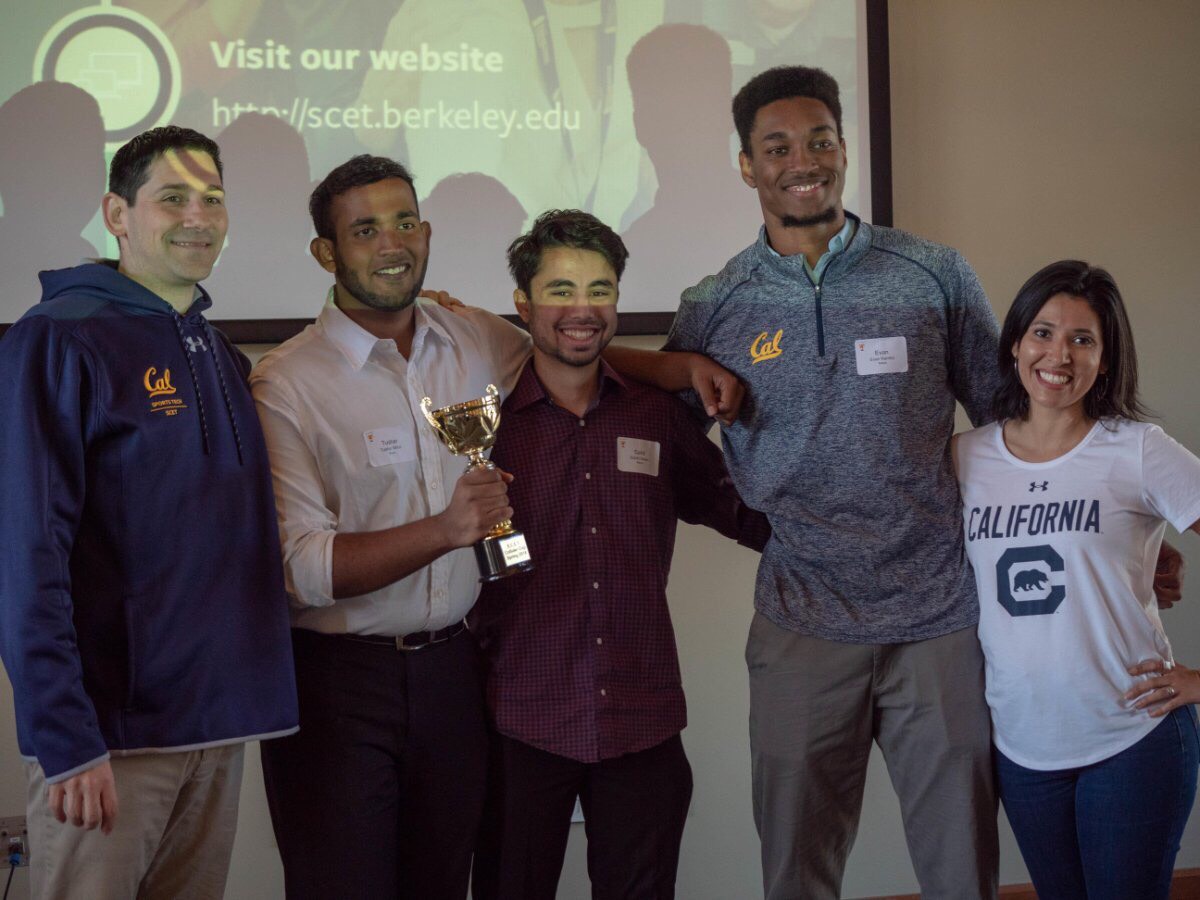Students invent glove that can track athlete technique, win SCET Collider Cup

Left to right: Stephen Tores - Sports Tech Instructor, Tushar Mittal, Sahil Hasan, Evan Rambo, Danielle Vivo - SCET Program Manager
The winning startup, Basys, has created special gloves that can track football players’ technique as they practice or play games. The wearable device then allows players to go back and track their athletic performance and pinpoint the specific technical improvements they can make.
“There’s no one out there trying to do what we’re trying to do with equipment and training,” said team member Evan Rambo, who is a defensive back on the Cal Football team.
Typically, football coaches have players watch video footage of their performance during a game to learn where they can improve. But Basys’ wearable gloves give players access to information about their performance that may not be able to be caught of video camera, such as the exact force with which they throw a ball.
The idea for such a device started with team members Tushar Mittal, a fourth year chemical biology and material engineering major, and Sahil Hasan, a third year electrical engineering and computer science major.
The two, who have known each other for three years, decided that they wanted to begin developing a new project together, but every time they got together to work, they got distracted –– talking about football. This passion for the sport led them to ultimately develop the initial idea for Basys.
A few months later, they attended an information session about SCET’s class on sports technology, where they met Rambo.
Rambo, a third year legal studies major, was interested in the project and was also in a unique position to approach the startup from a football player’s perspective. He also helped the team to secure regular meetings with Cal Head Football Coach Justin Wilcox.
“I would say, for us, one of the greatest pieces of help we got was ... regular meetings with Coach Wilcox,” Hasan said. “He really helped us understand the problem and he’s seen the different iterations of our project.”
Additionally, through enrolling in SCET’s Sports Tech Collider Sprint, the team members were offered access to mentors and experts in their field, such as Sudeep Badjatia, the Chief Architect of Cognitive Analytics & Big Data at IBM, who is continuing to give them feedback as they further develop their product.
Hasan noted that the atmosphere of the class also pushed them to succeed.
“Athletes are competitive,” Hasan said. “The entire class fostered a certain need to be the best that you possibly can.”
Moving forward, all team members aim to stay involved with the project. They’re currently hoping to have a prototype of their gloves ready to be tested on the football field by June.
Afterwards, they want to speak with more athletes and coaches to expand the capabilities of their wearable device to be helpful for more sports beyond football.
SCET’s Sports Tech Challenge Lab - INDENG 185 003 - encourages students to come up with innovative solutions to the problems facing athletes. SCET will offer the course again in the fall to a new cohort of students and athletes.
